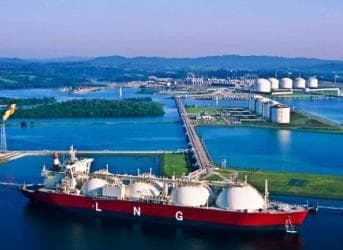In testimony today, June 13, to the House Committee on Energy and Commerce, Subcomittee on Energy and Power, newly appointed U.S. Energy Secretary Ernest Moniz reviewed the country's energy situation since President Obama's first inauguration. Oil and gas production, he said, has increased in the U.S. in each of the past five years, and oil imports are at a twenty-year low. Manufacturing and manufacturing jobs have increased as a result of increases in domestic natural gas production, which has also led to reductions in carbon dioxide emissions.
Moniz also said that he expects increases in domestic natural gas production to continue. Last month the Energy Department conditionally authorized the Freeport LNG Terminal on Quintana Island, Texas, which is the second proposed facility to export domestically produced liquefied natural gas (LNG) to countries that do not have a Free Trade Agreement with the United States. In reply to questions, Moniz promised that decisions on gas export itself would be definitely be taken by the end of the calendar. He will likely rely for this in part upon a study made by the MIT Energy Initiative, which he headed prior to becoming Energy Secretary last month. Moniz is a nuclear physicist by training and served in the Department of Energy under President Clinton.
Related article: Recent Events in the Battle to Export US LNG – Part 2
A report just published by The Center for Climate and Energy Solutions (C2ES, the successor to the respected and pragmatic Pew Center on Global Climate Change) complements Moniz's testimony. "Substitution of natural gas for coal, petroleum, and grid-supplied electricity is underway in other parts of the economy and will bring similar benefits to the climate and air quality," the report said, adding that "abundant natural gas will play an increasingly prominent role across all sectors of the U.S. economy" in years to come.
This is confirmed by yet another report, this time by the International Energy Agency (IEA), set up by the countries with advanced industrialized market economies of the OECD after the 1973-74 Arab oil embargo. During the period 2008-12, while total US power demand was more or less relatively, the share of coal in US electricity output fell from 49% to 37%, while gas increased from 21% to 30%, and renewables rose from 9% to 12%.
According to the C2ES report, U.S. energy sector carbon emissions at the beginning of 2013 were the lowest since 1994, thanks to the substitution of natural gas for coal in the power sector. Natural Resources Defense Council (NRDC) President Frances Beinecke acknowledged this in a speech on Tuesday to an annual energy and environment conference in Rhode Island. Beinecke said natural gas played a significant role in dropping United States greenhouse gas emissions to mid-1990s levels last year, as electric utilities burned more natural gas than coal. It was hydraulic fracturing (fracking) technology that drove natural gas prices down by increasing supply, allowing the substitution for coal to be made.
By. Robert M. Cutler


















